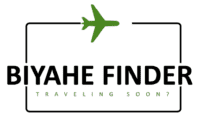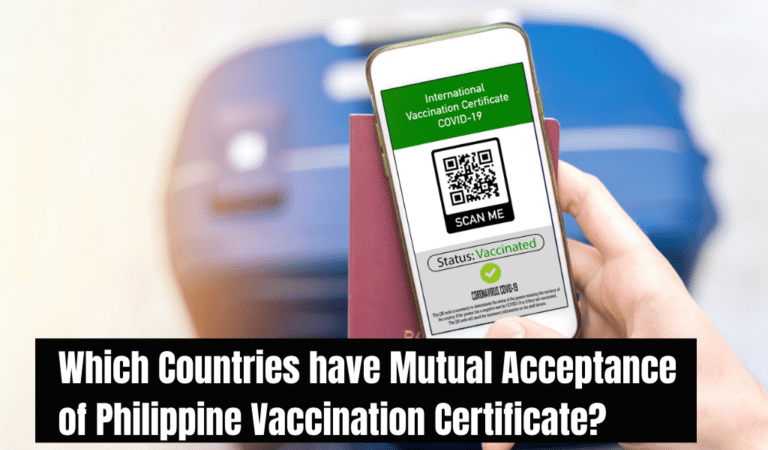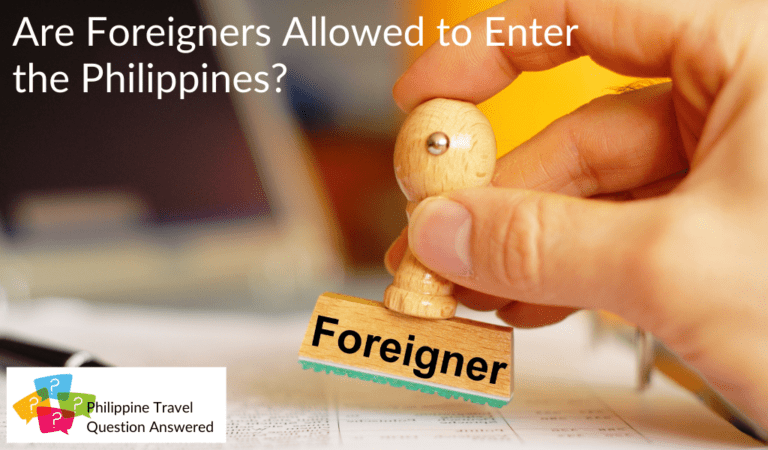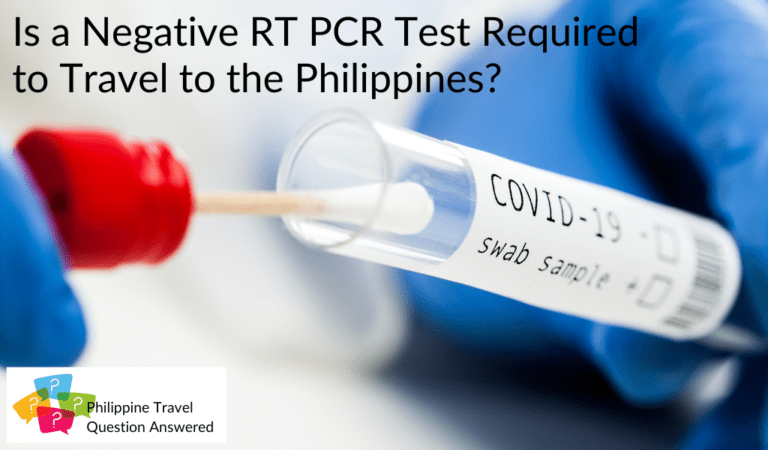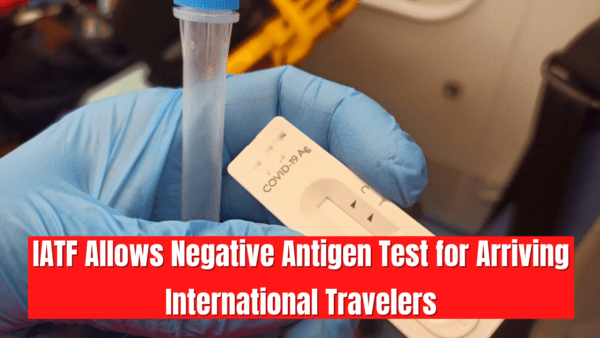Do Filipinos and Foreigners Require PCR Test to Enter the Philippines? Here’s Some Great News!
IATF Travel Guidelines Updated May 27, 2022: Filipinos and foreign nationals coming to the Philippines starting May 30 are no longer required to produce a negative reverse transcription-polymerase chain reaction (RT-PCR) test when arriving in the country.
The new protocol was included in the Inter-Agency Task Force for the Management of Emerging Infectious (IATF) Diseases’ resolution approved on May 27, 2022, according to an online press briefing by acting Deputy Presidential Spokesperson and Communications Undersecretary Michel Kristian Ablan.
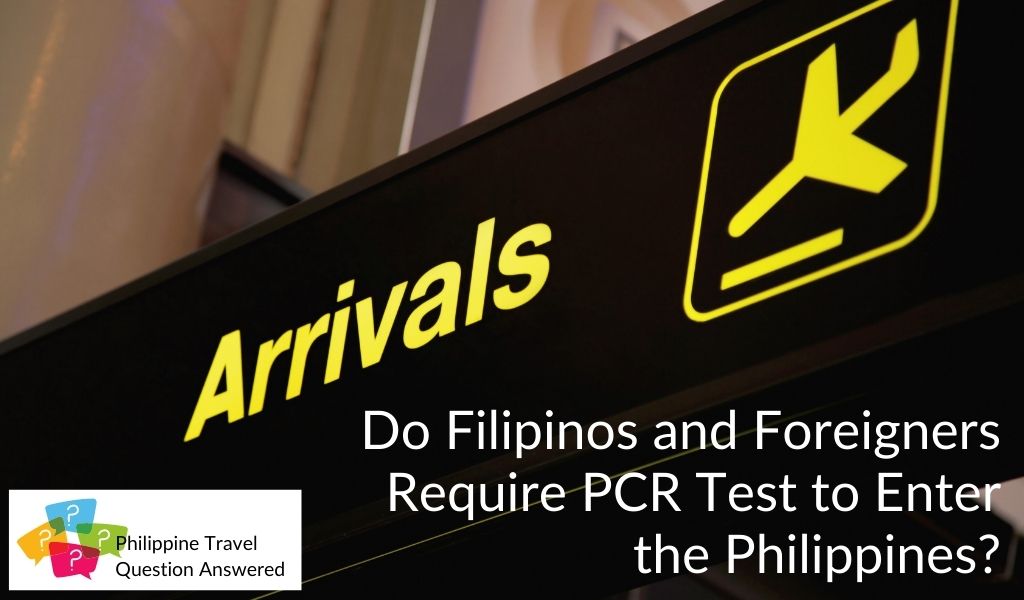
According to the updated IATF Travel Guidelines, inbound passengers are not required to have an RT-PCR test under IATF-EID Resolution 168 if they are 18 years old or older and have received at least one booster shot against the coronavirus disease 2019 (Covid-19).
Children aged 12 to 17 who have received two Covid-19 immunization injections and those under the age of 12 accompanied by fully vaccinated or boosted parents or guardians are also exempt from the pre-departure RT-PCR requirement.
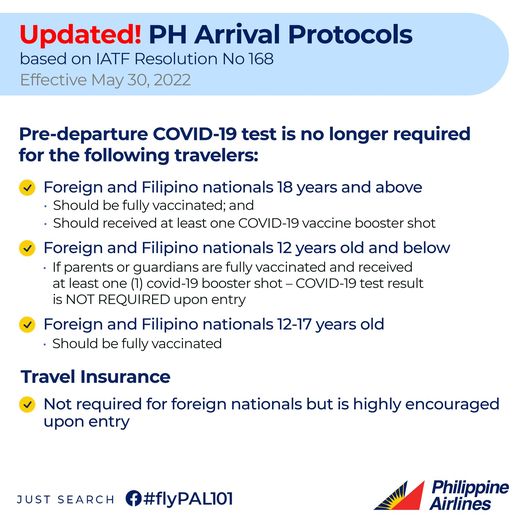
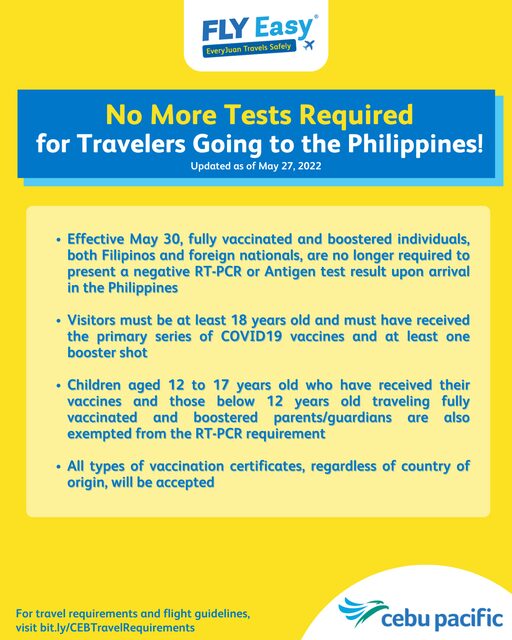
IATF Travel Guidelines: Travel Insurance Requirement Lifted
In a related development, the IATF-EID has removed the need for incoming passengers to purchase travel insurance, as announced in its most recent resolution. Covid-19 protocols under IATF Travel Guidelines Resolution 168 now allow visitors to enter the Philippines without getting travel insurance beforehand.
Though travel insurance is not mandatory anymore when visiting the Philippines, the IATF strongly recommends that foreigners have travel insurance upon entry.
They were formerly only allowed into the country if they purchased travel insurance for Covid-19 treatment expenses from recognized insurance firms with a minimum coverage of $35,000 throughout their stay.
As determined by the IATF-EID decision, Fully vaccinated people are still required to produce acceptable proof of immunization and passports that are valid for at least six months when they arrive.
Visitors who are only in transit must have valid return tickets to the port of origin or next destination no later than 30 days after arrival.
The following are acceptable proof of Covid-19 immunization: the World Health Organization International Certificate of Vaccination and Prophylaxis, VaxCertPH, national or state digital certificate from a foreign country that accepts VaxCertPH, and any other form of valid vaccination as determined by the IATF-EID.
Click here for the latest COVID Travel requirements for Local Destinations in the Philippines
IATF Travel Guidelines: Unvaccinated passengers
However, based on the same IATF Travel Guidelines Travelers who are unvaccinated, partially unvaccinated, or have unknown vaccination status must provide a negative RT-PCR test within 48 hours before arrival in the Philippines. Alternatively, a negative laboratory-based rapid antigen test (RAT) result from a healthcare professional certified and taken within 24 hours before departure from the country of origin or first embarkation in a continuous journey to the country.
They must also spend a period of facility quarantine until their negative RT-PCR test is taken on the fifth day after they arrive in the Philippines, and they must stay at home until their 14th day in the country.
Filipinos visiting the Philippines are also required to use the relaxed protocol, according to the Department of Tourism (DOT).
The relaxation of these rules in the new IATF Travel Guidelines confirms that Philippine tourism is moving forward, promoting transparency and accountability. “We are pleased that most of our initiatives have been approved by the IATF-EID and will now be implemented. As we make it easier for tourists to visit the country, public health and safety will remain a top priority for the DOT,” Secretary Bernadette Romulo-Puyat said.
“The DOT views this development as a benefit to the local tourism sector since increased visitors will result in more income for our MSMEs and restore more jobs and livelihoods in the sector,” she added.
The DOT also stated that travel insurance is no longer necessary, but it is still advised for new passengers. Regardless of origin country, all sorts of vaccination certificates will be accepted.
According to the latest DOT statistics, some 517,516 foreigners visited the Philippines from February 10 to May 25, 2022. The United States was the source of the most significant number of foreign visitors, accounting for 104,589 individuals. South Korea came in second with 28,474 visitors, while Canada had 24,337 tourists. Australian (23,286), British/English (20,846), and Japanese (13,373) tourists made up the following three places on the list.
During the early months of 2022, visitors from other countries included Vietnamese, Singaporeans, Malaysians, Italians, Irishmen, and French people.
Frequently Asked Questions on Testing When Entering the Philippines
Is RT-PCR test required to enter the Philippines?
The Philippine government has announced that people who have been vaccinated will no longer be required to submit a negative Covid test before traveling to the country beginning on May 30, 2022.
Is quarantine still needed in the Philippines?
Unvaccinated, half-vaccinated, and passengers whose vaccination status cannot be confirmed are required to complete a facility-based quarantine at the first Philippine port of entry, regardless of their ultimate domestic destination. Prior to booking the facility, make sure to check your first PH arrival airport.
Is Travel Insurance required when traveling to the Philippines?
Travel insurance is not required anymore for foreign nationals visiting the Philippines but is highly encouraged.
Is COVID Testing required for Unvaccinated travelers to the Philippines?
Travelers who are unvaccinated, partially unvaccinated, or have unknown vaccination status must provide a negative RT-PCR test within 48 hours before arrival in the Philippines. Alternatively, the same IATF Travel guidelines accept a negative laboratory-based rapid antigen test (RAT) result from a healthcare professional certified and taken within 24 hours before departure from the country of origin or first embarkation in a continuous journey to the country.
